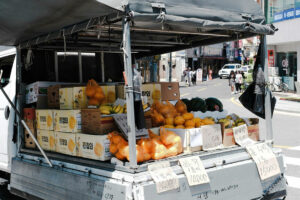By Justine Irish D. Tabile, Reporter
THE PHILIPPINES needs to promote awareness among its exporters of the benefits available from the free trade agreement (FTA) with South Korea, a Korean analyst said.
Kye Hwan Kim, senior research fellow at the Korea Institute for Industrial Economics & Trade, said an FTA doesn’t automatically translate to increased exports.
“Exports are affected by a web of multiple factors, including tariff benefits, market accessibility, supply chain readiness, quality and branding, and government support,” he said.
“The FTA should be viewed not merely as a tariff-reduction tool but as a strategic opportunity for cooperation and value chain restructuring,” he added.
Further, he said demand, competition from similarly situated countries, supply chain factors, and quality may have also affected Philippine exports to South Korea, despite the FTA being in place since the end of 2024.
The Philippine Statistics Authority reported that exports to South Korea declined 15% in the first nine months to $2.39 billion, while imports from South Korea grew 9.2% to $7.74 billion.
Mr. Kim added that the Philippines needs to diversify its product offerings, enhance the quality of its brands, and improve logistics and supply chains, apart from promoting the FTA.
Over the medium to long term, he recommended joint value chain development, broader service and technology cooperation, market and product diversification, stronger government support, and bilateral cooperation platforms.
In particular, he said that Korean and Philippine firms should work together to develop products tailored to Korean tastes.
He said technology transfer and localization in agro-processing, information and communications technology, smart farming, and food-processing technology will help broaden the Philippines’ export offerings.
The Philippines, he said, could also expand its mix of exports to South Korea to diversify risk.
Other than agricultural goods, he said that the Philippines could also export “electrical and electronic parts, optical medical instruments, processed food and health supplements, marine and aquatic products, processed seafood, and raw materials” to South Korea.
He said that he expects international trade and investment to restructure and end up looking like “the multipolar order” akin to a great-power competition scenario.
He said that amid protectionism, larger countries are relatively advantaged, as they can achieve economies of scale through their domestic markets alone.
On the other hand, emerging economies or middle powers like the Philippines need to participate in international trade to achieve such scale.
“Economies of scale can be achieved through solidarity and cooperation among middle powers, depending on which independent roles they can strengthen,” he said.
“I believe it will be crucial to achieve prosperity by pooling each country’s industrial capabilities and collaborating with one another,” he added.

